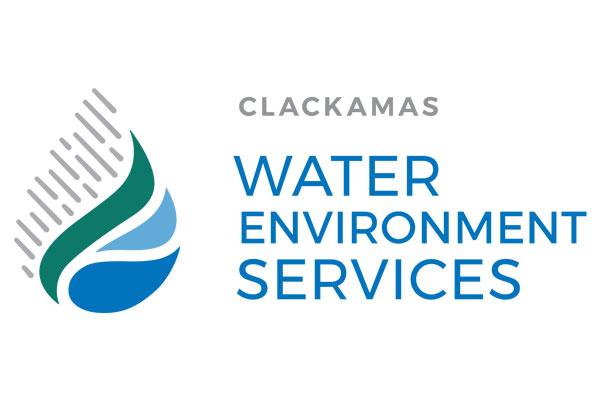We've transitioned our stormwater management program from a regulatory-driven approach to stormwater management. Our focus is on improving overall watershed health. This integrated approach is focused on four main components:
- Hydrology
Managing stormwater runoff in a manner that minimizes flooding and stream channel degradation - Water Quality
Reducing in-stream contaminants - Habitat
Promoting the function and/or restoration of functioning and healthy streams and riparian areas - Biological
Maintaining viable aquatic insect and diverse fish and wildlife populations
RiverHealth Stewardship Program
The RiverHealth Stewardship Program offers grants to support community groups, businesses, and property owners who want to improve the health of watersheds within the surface water areas served by Water Environment Services. See the Grant application and guide for forms and program details, including eligibility and project ideas. For questions, contact Gail Shaloum at 503-742-4597 or gshaloum@clackamas.us.
RiverHealth Watershed Stewardship Program grant accomplishments 2021-22
In FY 2021-22, RiverHealth grantees who undertook restoration work accomplished the following:
- Removed 53.7 acres of invasive species
- Planted 1,395 native trees, 11,619 shrubs, and 1,850 herbaceous plants
- Enhanced a total of 8,851 linear feet of streams over 41.6 acres
- Involved 602 volunteers
In FY 2021-22, RiverHealth grantees who undertook watershed health educational projects accomplished the following:
- Gave 59 different lessons, field trips, or other educational sessions
- Provided watershed health education to 866 students and 678 adults
- Conducted 20 public events
The grant application process is open February through mid-April annually.
- Grant guide
- Application and Budget form
Contact Gail Shaloum at GShaloum@clackamas.us for an XLS version of this document.
- Application and Budget form
- 2023 grant recipients
Storm System Master Plan (SSMP)
The Storm System Master Plan (SSMP) provides a framework for storm system infrastructure operations, maintenance, and expansion to improve the quality of surface water and maintain infrastructure function in the WES service area.
Outreach and education
- Watershed Health Education Program
- Parting with Pesticides Pledge Program for the Clackamas Watershed
- Spring 2018 Got Weeds? Get help from CRISP
- The River Starts Here
- Regional Coalition for Clean Rivers and Streams
- Garden Chemical Awareness flier
- Love Your Lawn without Pesticides Factsheet
- Moss on Roofs: Pesticide-Free Control
- Weed and Pesticide Information and Tips
Monitoring
We conduct a long-term monitoring program to evaluate stream health in its surface water areas. The comprehensive monitoring program began in 2009, although we've sampled macroinvertebrates since 2002.
Geomorphic monitoring reveals the impacts associated with hydromodification, or the change in stream habitat caused by urban runoff. Macroinvertebrate monitoring indicates the impacts on ecological systems. This information is useful for the prioritization of stream restoration projects and watershed management efforts.
Macroinvertebrate/Geomorphic survey results
US Geological Survey monitoring
 Translate
Translate






